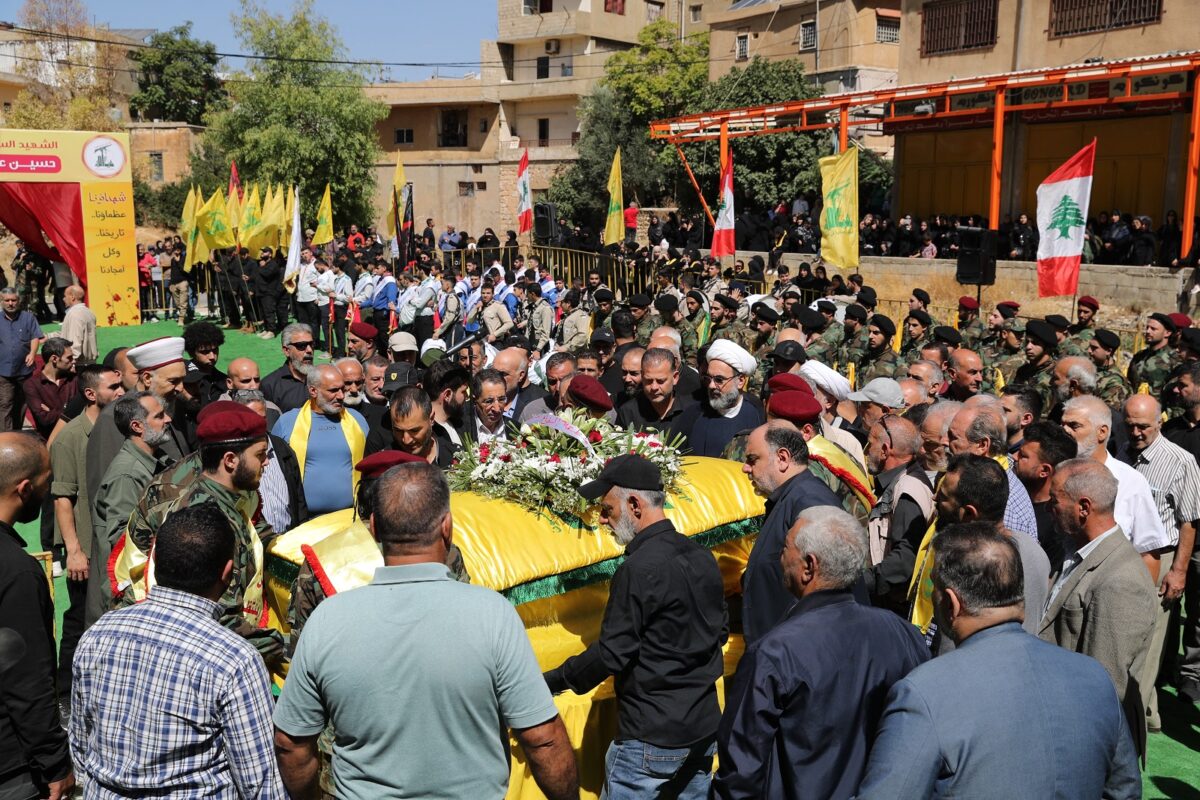
As tensions between Israel and Hezbollah escalate following coordinated attacks on Hezbollah’s communication systems in Lebanon, speculation has arisen about whether these events signal the prelude to a larger conflict or are part of a calculated strategy to avoid one
While some analysts suggest that Israel has lost a key opportunity by not following recent attacks with a large-scale invasion into southern Lebanon, a deeper analysis reveals that neither Hezbollah nor Israel currently has the resources, capability, or intention for an all-out war. The attacks on Hezbollah’s communication networks, while significant, seem intended to send a message: Israel can strike Hezbollah’s capabilities at any time, with precision, and without the need for a ground invasion.
Israel’s strategy: tactical strikes over full-scale invasion
The recent attacks on pager and walkie-talkie devices used by Hezbollah operatives are not random acts of aggression. They reflect Israel’s broader strategy of strategic containment – targeting Hezbollah’s communication networks and operational capabilities without committing to a costly ground war. Reports indicate that Israel’s intelligence services, likely with Mossad’s involvement, planted explosives within the communication devices months before triggering the simultaneous explosions across Lebanon. The precision and coordination required for such an attack demonstrate Israel’s technological superiority and its ability to infiltrate Hezbollah’s infrastructure without mobilizing a large military force.
Israel’s immediate objective seems to be creating a buffer zone north of the Litani River to prevent future Hezbollah attacks on Israeli cities. The idea is to push Hezbollah’s military capabilities further away from the Israeli border, ensuring the safety of civilians in northern Israel. However, occupying southern Lebanon would require significant military resources, which Israel may not be willing to commit, especially given ongoing challenges elsewhere, such as in Gaza and its own political landscape. Historically, Israel’s involvement in Lebanon, including the 2006 war, resulted in protracted conflicts that proved both costly and unpopular domestically.
Strategic pressure: weakening Hezbollah for negotiations
Beyond the immediate objective of neutralizing Hezbollah’s military capabilities, these targeted strikes on Hezbollah’s communication networks could also be part of a broader strategy by Israel to weaken Hezbollah’s bargaining position in future negotiations. Rather than aiming for a full-scale confrontation, Israel may be eroding Hezbollah’s operational strength and public image, forcing the group into a corner where they would be more willing to accept a less favorable deal.
In this context, Israel’s strikes might be a form of strategic leverage aimed at shifting the power balance. By demonstrating its ability to strike deep into Hezbollah’s operations – without the need for a full-scale invasion – Israel signals that it can continue applying pressure indefinitely. This could undermine Hezbollah’s confidence and force its leadership to reconsider its position in broader regional negotiations, particularly concerning Lebanon’s internal power dynamics or its role in supporting other Iranian-aligned groups.
From a geopolitical perspective, Israel likely understands that fully eliminating Hezbollah is unrealistic, especially given Hezbollah’s deep-rooted political influence in Lebanon and its backing from Iran. Therefore, the goal may be to cripple Hezbollah enough so that it is compelled to make concessions, either in terms of military de-escalation, withdrawal from southern Lebanon, or limiting its involvement in broader conflicts like the war in Syria. Such concessions would allow Israel to achieve its objectives – securing its northern border and reducing Hezbollah’s influence – without the need for a protracted and costly ground war.
Hezbollah’s limitations: strategic patience in a fragile Lebanon
Hezbollah, while maintaining strong military capabilities, is operating in a politically and economically fragile Lebanon. The country is still grappling with a devastating economic crisis, and any full-scale conflict with Israel could further destabilize the nation. Hezbollah’s internal support has also been challenged, as many Lebanese citizens grow increasingly frustrated with the group’s dual role as both a political actor and military force. Given these circumstances, Hezbollah’s leadership is likely to avoid a direct confrontation with Israel, knowing that a prolonged war would not only damage its own military standing but could also further alienate the Lebanese public.
A calculated balance
Despite the severe nature of these attacks, it appears that neither Israel nor Hezbollah is willing to engage in a full-scale war at this time. Both sides are playing a delicate balancing act, with Israel seeking to neutralize Hezbollah’s military capabilities and Hezbollah aiming to maintain its influence without provoking a larger conflict. This cautious approach suggests that both parties are aware of the high costs of war and are instead opting for smaller-scale, targeted engagements.
While the situation remains fluid, it seems unlikely that these recent events will spiral into a full-blown war. Instead, they are part of a broader strategy of containment and deterrence, with each side attempting to assert its dominance without triggering an all-out conflict. In the coming weeks, as tensions continue to simmer, the focus will likely remain on these limited strikes and retaliations, as both Hezbollah and Israel seek to avoid a larger, more destructive war.
Ramzi Abou Ismail is a political psychologist and researcher at the University of Kent.
The views in this story reflect those of the author alone and do not necessarily reflect the beliefs of NOW.








